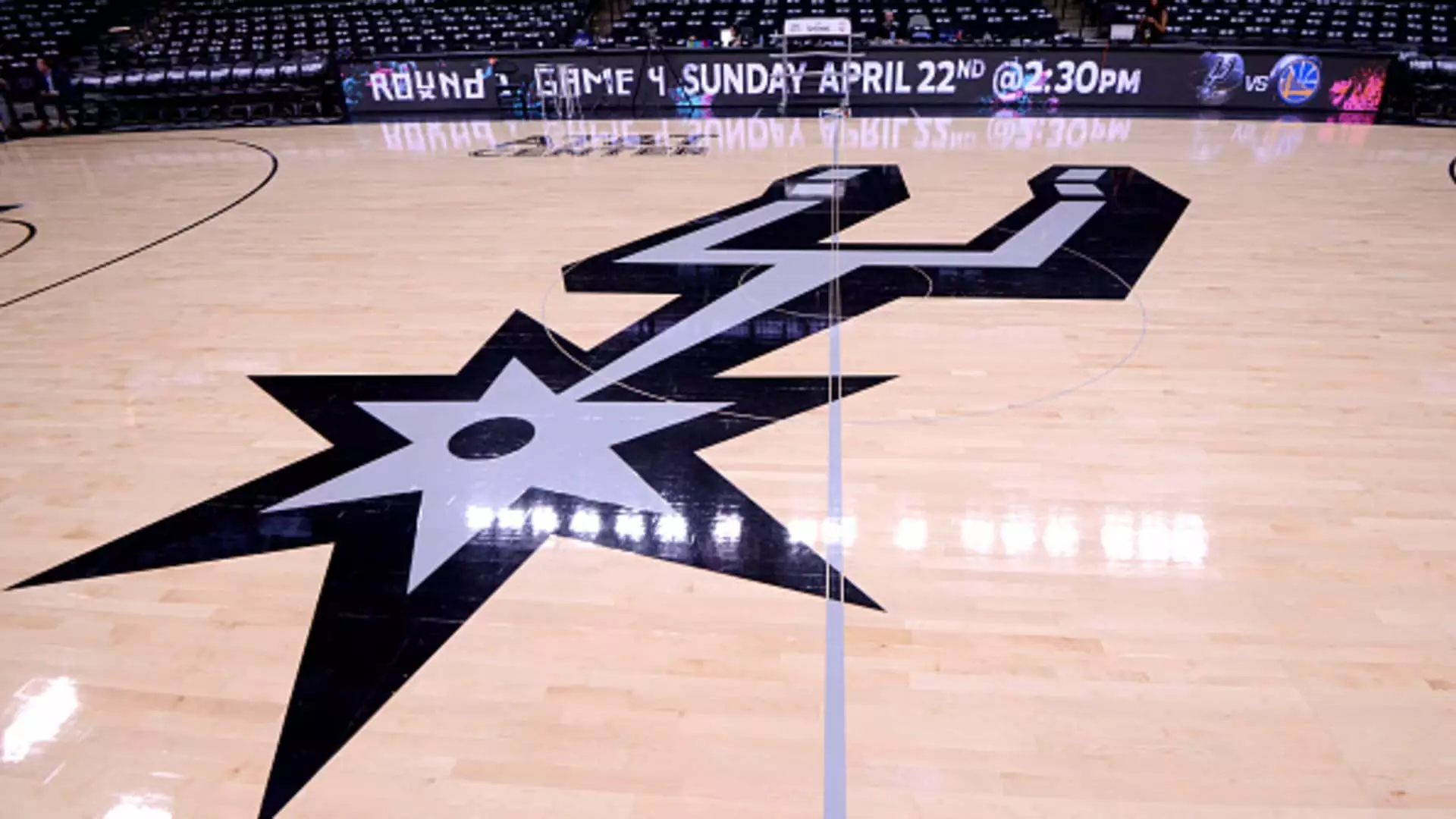In a noteworthy maneuver within the realm of professional sports investments, businessman Paul Viera has elevated his stake in the San Antonio Spurs from 5% to a commanding 11%. Sources familiar with the transaction reveal that this expansion reflects not only Viera’s personal ambition but also the broader trend of increasing NBA valuations, which have made basketball franchises more enticing to investors. As the founder and CEO of Earnest Partners, a prominent investment firm based in Atlanta, Viera’s strategic moves are closely watched by industry analysts and fans alike.
Understanding the Deal
Viera’s recent acquisition involved him buying out the remaining interest held by food service giant Aramark at a significantly reduced rate. The finalized deal places the Spurs’ overall valuation at $2.5 billion, a figure indicative of the rising financial landscape surrounding major sports teams. However, insights from Aramark’s 2023 annual reports suggest that the company incurred a pretax loss associated with its partial sale of Spurs shares, highlighting the nuanced complexities that minority owners often face in the high-stakes world of sports investments. Such financial metrics underline that while franchises may be valued highly, minority ownership can sometimes involve tricky financial waters.
The San Antonio Spurs have an illustrious history, boasting five NBA championships and significant community recognition. Despite the team’s recent struggle, finishing last in their division with a 22-60 record in the 2023-24 season, they are beginning to pivot their trajectory. The young superstar Victor Wembanyama is pivotal to this shift, potentially turning both the team’s fortunes on the court and its financial viability in the years to come. The Spurs have not returned to the postseason since 2019, but the talent injected into the roster could signal a bright future, leading to an increased investment appeal.
This surge in NBA valuations isn’t isolated. The league recently secured a monumental $76 billion, 11-year media deal, which cements its standing as an attractive investment. High-profile sales such as former Milwaukee Bucks star Junior Bridgeman’s purchase of a 10% stake for a staggering $3.4 billion further illustrate this trend. Such valuations prompt scrutiny of existing financial structures in the realm of sports ownership, raising questions about investment strategy, governance, and control over pivotal decisions concerning the teams.
Viera’s investment also aligns with the NBA’s overarching goal of fostering diverse ownership within the league. By acquiring a larger stake, he joins a select group of minority owners, including former players and prominent figures in business, enhancing the representation of diverse voices in sports ownership. From Grant Hill in the Atlanta Hawks to Dwyane Wade in the Utah Jazz, the inclusion of individuals from various backgrounds continues to reshape the landscape of the NBA, providing fresh perspectives and strategies in franchise management.
The Future of the Celtics and Market Dynamics
As Viera expands his influence in one Texas franchise, the attention of sports analysts now shifts towards the Boston Celtics. Co-owner Wyc Grousbeck’s decision to sell the family’s controlling stake could lead to a substantial payday, projected between $5.5 billion and $6 billion. This potential sale would illustrate the ever-escalating valuations within the league, reminiscent of the history when the Grousbecks purchased the Celtics for just $360 million in 2002.
The Bigger Picture
Paul Viera’s increased stake in the San Antonio Spurs symbolizes a merging of sports and finance that is increasingly attracting high-profile investors. As franchises like the Spurs cultivate new talent and rebuild, their financial trajectories will likely continue to offer lucrative opportunities. With the NBA actively promoting minority ownership, it is essential to acknowledge the shift in dynamics concerning who is entrusted with managing the future of such storied franchises. As ever, the interplay between talent, investment, and community will define what sports ownership looks like in the coming years.


Leave a Reply